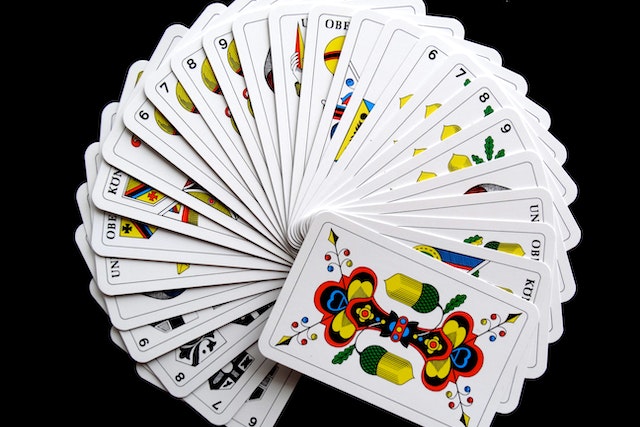Are Tarot Cards BS?
The issue of whether tarot decks are classified as “bs” or not depends on one’s perception and beliefs. Tarot cards are used to help with self-reflection and divination, which have roots dating to the 15th century.
Many people see the Tarot as a method of gaining insights, direction, and a better understanding of oneself and life’s conditions. Many believe the symbolic meanings and archetypes depicted in cards can penetrate the subconscious mind and offer beneficial insight. Some, however, might dismiss tarot cards as a belief or as a method of entertainment without any foundation.
Skeptics believe that any apparent accuracy in readings from tarot cards could be attributed to the psychological principle of confirmation bias or the expert interpretive abilities of the reader rather than any inherent mystical characteristics. Whether tarot cards are regarded as “bs” or not is an opinion influenced by your individual beliefs, experiences, and worldview. It is crucial to consider Tarot, just like every other kind of ritual, with an open and open-minded approach and by allowing people to evaluate its value for their own reasons.
What Is The Best Time To Not Take A Tarot Reading?

When you are reading the tarot cards, there are certain instances or circumstances in which it might be better to delay or avoid the reading. Below are a few instances that might make it wise not to be reading tarot cards:
Emotional Vulnerability or Crisis
If you’re vulnerable to emotional pain, for instance, in the midst of a personal crisis or following a traumatic incident, it might not be the ideal moment to consult tarot cards. Tarot readings may trigger profound emotions and revelations, exacerbating a fragile emotional state. It is vital to focus on your emotional and mental well-being and seek support from trustworthy family members, friends, or professionals before participating in any divinatory practice.
Dependent Decision-Making
Tarot cards shouldn’t be relied on solely for making life-changing decisions. Although they can offer guidance and perspective, it is important to base your decisions on a mix of logical thinking, careful analysis, and consulting trustworthy people. Making your entire faith and power of decision-making dependent on tarot decks can cause a lack of personal accountability and agency.
Seeking Absolute Predictions
Tarot cards aren’t designed to give precise predictions about the future. They provide insight into possible routes, influences, and perspectives based on present circumstances. It is important to look at the Tarot with the understanding that the future isn’t written in stone and concrete and can be affected by various elements, including the choices you make and the actions you take. If you’re looking for concrete, absolute predictions or answers, the Tarot is not the right tool for you.
Lack of Emotional Readiness
Tarot readings may reveal aspects of the world that we might not be emotionally ready to face. Suppose you’re not ready to reflect deeply or confront difficult truths. In that case, it may be best to put off reading until you are more emotionally ready and receptive to receiving any messages that could arise.
Strong Skepticism or Disbelief
If you have a strong sense of doubt about tarot cards or other divinatory techniques, participating in readings with an open-minded mind can be difficult. A closed-minded or skeptical mentality can limit the benefits that the Tarot offers. It is essential to take tarot readings with a degree of receptivity and a willingness to expose yourself, possibly even offering an appropriate amount of information.
In the end, Tarot cards can be useful for self-reflection and direction; however, there are some situations that it’s wise to steer clear of or postpone the reading. Instability to emotion, reliance on decision-making and a desire for absolute predictions, insufficient emotional maturity, and a strong skepticism are a few things to consider when deciding the appropriateness of reading Tarot cards.
It is essential to treat the Tarot with respect, self-awareness, and a well-balanced perspective, using it to boost individual growth and not as the sole source of information for the path one takes.
What Are The Pros And Cons Of The Tarot?

Tarot cards, as with every other method or practice, have limitations and potential disadvantages. Here are some cons to take into consideration when reading tarot cards:
Subjectivity and Interpretation
Tarot readings rely heavily on interpretation by both the reader and the person reading. Different readers can interpret the cards in different ways, resulting in different interpretations of the provided interpretations and information.
In addition, the person receiving the reading could interpret the meaning of the cards based on their own biases, beliefs, expectations, and assumptions. This can lead to an element of uncertainty and an absence of consistency regarding the reliability and accuracy of readings with tarot cards.
Misinterpretation and Misrepresentation
Tarot readings involve archetypal and symbolic imagery. There is the potential for misinterpretation or misrepresentation of the cards’ meanings. Readers and those who receive Tarot readings may misinterpret the meaning of the symbols, resulting in untrue or incorrect advice. There is also the risk of imposing personal beliefs, desires, or fears on the cards, distorting the meaning they communicate.
Dependence and Loss of Personal Agency
One of the drawbacks of reading tarot cards is the possibility that people become too dependent upon the decks for making decisions or seeking guidance in life. Relying only on external sources, like Tarot cards, can erode personal authority and decision-making abilities. It is essential to balance getting guidance from the Tarot with being accountable for personal choices and actions.
Ethics and Moral Concerns of Readers
Although there are trustworthy and ethical tarot readers, it is essential to recognize that not all who provide readings using the tarot operate in the same manner and have the same credibility. Some might exploit vulnerable individuals, manipulate readings for personal gain, or even claim to have a false belief regarding their skills. It is essential to be careful when selecting tarot readers and to investigate their qualifications, reputation, and ethical conduct.
Psychological Vulnerability
Tarot readings can create or increase mental vulnerabilities for some people. The meanings and symbolism the cards communicate may draw out deep-seated emotions, fears, and traumas that may not be easy to manage. It is important to be aware of your feelings and ensure you are emotionally ready and well-supported when taking part in readings.
It is crucial to remember that even though these drawbacks exist, they don’t invalidate the tarot practice. Many people find tarot readings insightful, inspiring, and useful in their personal development journey. But it’s important to be able to approach Tarot with a critical and discernible mindset while recognizing the potential benefits as well as the potential drawbacks.
Can Anyone Read Tarot Card Readings?
While anyone can theoretically learn how to read tarot decks, it takes a certain amount of commitment, understanding, and skills to master the art. Here are some points to think about when you are studying the tarot cards:
Learning the Symbolism and Meanings
To read the tarot cards effectively, you must be familiar with the symbols and meanings associated with each card. Tarot decks generally comprise 78 cards, each with distinctive symbolism and interpretation. Understanding the meaning of these symbols is a process that takes time and dedication. It is about understanding the old interpretations and how cards connect.
Developing Intuition and Interpretation Skills
Beyond absorbing the cards’ meanings, the skilled tarot reader depends on intuition and interpretive abilities. This requires the ability to sense the cards’ energy and tap into your intuition to gain deeper insights and direction. Learning to interpret and develop intuition is often developed through years of practice, and when readers begin to trust their intuition and draw connections between cards and the situation or questions in front of them,
Ethical Considerations and Responsibility
Tarot reading also requires an ethical level of consideration and accountability. Tarot readers need to be aware of the importance of maintaining confidentiality for clients while respecting boundaries and offering unbiased advice. They should create an unsecured and non-judgmental environment for their clients and ensure that readings are done professionally and with integrity.
Personal Connection and Empathy
The success of a tarot reading usually depends on the ability of the reader to build a relationship with the person receiving the reading. It calls for empathy, active listening, and the ability to recognize and feel the client’s feelings, concerns, and personal experiences. The ability to build rapport and create a comfortable atmosphere can improve the efficacy of reading and the overall experience for both the person reading and the reader.
Continuous Learning and Growth
A tarot reading can be viewed as a constant learning process. Even the most experienced readers continue to expand their knowledge, develop their skills, and try different spreads and decks. They might engage in ongoing research, attend classes or workshops, or seek advice from fellow experienced readers. A commitment to continuous growth and learning is vital for a tarot reader to increase their skills and give accurate and meaningful readings.
In the end, although anyone can learn how to read Tarot cards, becoming a proficient and skilled reader takes commitment, an understanding of symbols, improving your intuition and reading skills, ethical considerations, an intimate relationship with clients, and a commitment to ongoing improvement and learning. With perseverance and determination, people can improve their ability to read tarot cards and provide valuable information and guidance to those seeking assistance.
Is The Tarot Card Reading Accurate?

The issue of whether tarot readings are “true” or not is complicated and depends on the individual’s views and convictions. Here are some points to think about when examining the validity of tarot card readings:
Subjective Interpretation and Perception
Tarot readings on cards depend on interpretation and are based on the cards. The significance of the cards and the information derived from them will differ depending on the interpretation of the reader and the person receiving the reading. The symbolism on the cards is subject to various interpretations, allowing for a subjective meaning to be given. Therefore, what is one person’s interpretation of a particular reading may not be interpreted by another in the same manner.
Psychological Factors and Self-Reflection
Tarot card readings often draw on the subconscious mind. They may give insights that are a source of inspiration for the person on a personal level. The archetypes and imagery in the cards can prompt self-reflection, allowing people to better comprehend their emotions, thoughts, and feelings. In this regard, the alleged “truth” in tarot readings could be due to psychological factors like reflection, self-awareness, and the capability to connect with the cards and one’s particular life situation.
Synchronicity and Meaningful Coincidences
Certain tarot enthusiasts adhere to the notion of synchronicity. Significant coincidences are believed to happen when there is a connection between internal and external happenings. According to this view, readings with tarot cards can be viewed as a method to connect with synchronized events, meaning that the cards drawn and the interpretations given align with the person’s current experience or concerns. The authenticity of tarot readings is due to these synchronistic events.
Personal Beliefs and Spirituality
A belief system that believes in the accuracy of readings from tarot cards can be influenced by beliefs about yourself and religious beliefs. Many people adhere to the metaphysical or spiritual belief system that suggests that tarot cards are connected to higher levels of consciousness, intuition, and spiritual realms. If you hold these convictions, readings with tarot cards could be considered a method to gain divine or spiritual insight.
Skepticism and Scientific Perspective
From an esoteric or scientific perspective, tarot card readings can be considered a purely psychological phenomenon. Skeptics believe that any perception of accuracy or authenticity in tarot readings could be attributed to psychological factors like confirmation bias or the Barnum and placebo effects.
They argue their belief that interpretations, as well as knowledge given during a reading, could result from the reader’s intuition, their knowledge of the human mind, and the reader’s perception and projection onto the cards.
In the end, the accuracy of tarot readings is a matter of opinion. It is affected by various aspects like perception, interpretation of the psychological process, and personal beliefs and experiences.
Certain people find profound understanding and meaning in readings with tarot cards, whereas others consider them to be merely entertainment or psychological tools. It is essential for all people to engage in tarot readings with a wide-ranging perspective and be aware of their subjective nature, the potential for self-reflection, and personal growth.
What Is The Culture That Tarot Comes From?

Tarot’s origins can be traced to a variety of cultural influences. Here are a few things to think about regarding the cultural basis of the Tarot:
Italian Renaissance and Playing Cards
The first known tarot decks were invented in Italy in the 15th century, mostly in Lombardy. These decks were initially utilized to play games with cards, like the current card decks. The first Italian tarot decks, also known as trochi, comprised four suits: cups, swords, coins, and batons (later called wands), along with an assortment of picture cards.
European Occultism and Esotericism
In the late 18th and 19th centuries, tarot decks became popular in Europe’s occult and esoteric circles. They were influenced by the Western esoteric tradition and that of the Hermetic Order of the Golden Dawn; tarot cards were beginning to be associated with symbolism, divination, and spiritual exploration. The time saw the creation of new tarot decks that have complex symbolism and esoteric connections.
Symbolism and Mysticism
The tarot includes a variety of archetypes, symbols, and mystic elements drawn from diverse cultures and religions. Its Major Arcana, a subset of the Tarot deck comprised of 22 cards, includes powerful archetypes drawn from various mythologies, religions, and philosophical theories. The archetypes comprise people like The Fool, The Magician, The High Priestess, The Emperor, The World, and The World.
Kabbalah and Tarot Correspondences
In the nineteenth and twentieth centuries, there was a connection between the Tarot and the mysterious Jewish practice of Kabbalah. Like the Rider-Waite-Smith decks, tarot decks could incorporate Kabbalistic symbols and their correspondences in their interpretations. This link between tarot and Kabbalah was influential on future tarot decks and spiritual teachings.
Global Popularity and Cultural Adaptations
Tarot has grown in popularity worldwide and has been modified and interpreted by different beliefs and cultures. Different countries and cultures have created distinct decks of tarot that incorporate local symbols, images, and interpretations. Tarot is a popular method of divination and is revered across the globe, transcending the boundaries of culture and being embraced by people from different backgrounds.
In the end, the historical history of the tarot is found in its beginnings in the Italian Renaissance, where it began as an assortment of playing cards. Tarot was associated with symbolism, occultism, and mysticism as time passed. It draws inspiration from a variety of cultural and esoteric practices. Tarot has grown into an international phenomenon, with adaptations to different cultures and interpretations that reflect the wide range of its users around the globe.
FAQ’s
What are Tarot cards?
Tarot cards are a deck of cards commonly used for divination and fortune-telling purposes. Each card in the deck represents a symbolic image or concept that can be interpreted by a reader to gain insight into various aspects of a person’s life or future events.
How do Tarot cards work?
The interpretation of Tarot cards is based on the belief that the cards tap into the subconscious mind or the collective unconscious, allowing the reader to access hidden knowledge or intuitive insights. The reader shuffles the deck and lays out the cards in a specific pattern or spread, and then interprets the cards based on their position, symbolism, and their relationship to one another.
Are Tarot cards accurate?
The accuracy of Tarot card readings is a matter of personal belief and interpretation. Some people find Tarot readings to be insightful and meaningful, while others view them as purely psychological or symbolic tools. It’s important to approach Tarot cards with an open mind and consider them as a tool for self-reflection and exploration rather than a definitive prediction of the future.
Can Tarot cards predict the future?
Tarot cards are not believed to have the power to predict the future with absolute certainty. Instead, they provide a glimpse into possible paths and outcomes based on the current circumstances and energies surrounding the person or situation being examined. Tarot readings are subjective and can be influenced by the reader’s interpretation and the querent’s own beliefs and actions.
Do Tarot cards have any real power?
The power attributed to Tarot cards is subjective and varies depending on personal beliefs. From a rational standpoint, Tarot cards are printed pieces of cardboard with symbolic images. However, for those who believe in the spiritual or metaphysical aspects of Tarot, they can be seen as a tool for self-reflection, personal growth, and accessing intuitive insights.
Should I rely solely on Tarot card readings?
Tarot card readings can be a valuable tool for self-reflection and gaining insight into various aspects of your life. However, it’s important to remember that they are not a substitute for personal responsibility and decision-making. It’s advisable to use Tarot cards as one of many resources for guidance and combine them with critical thinking, intuition, and common sense when making important life choices.














